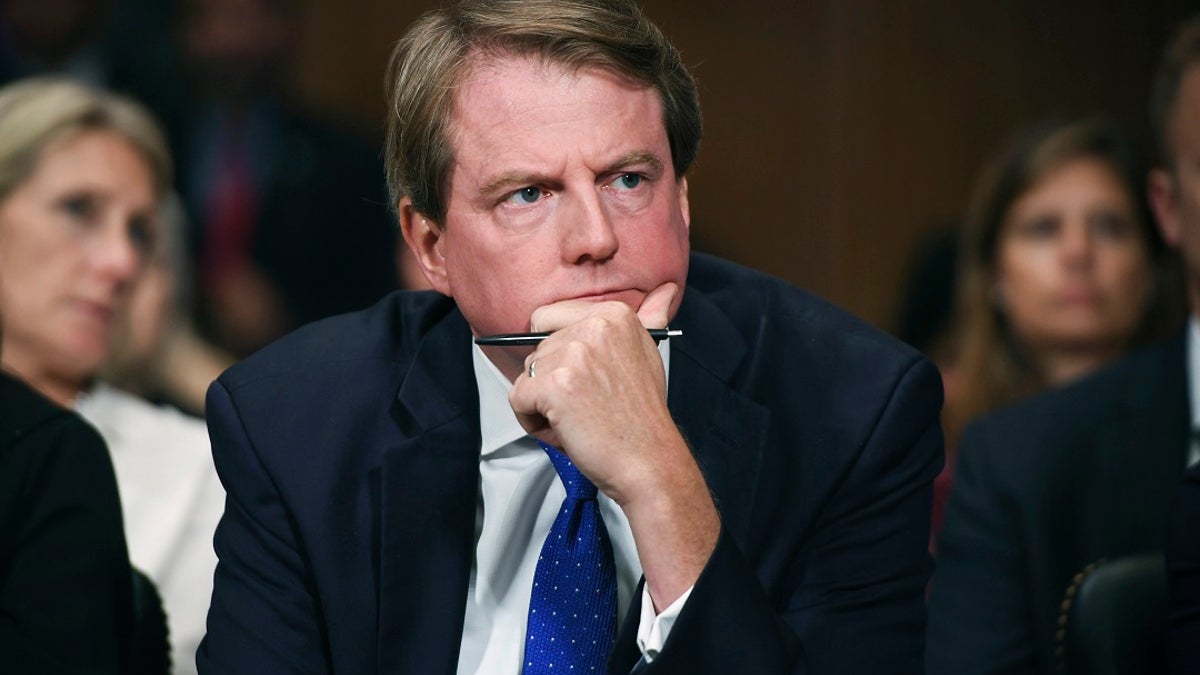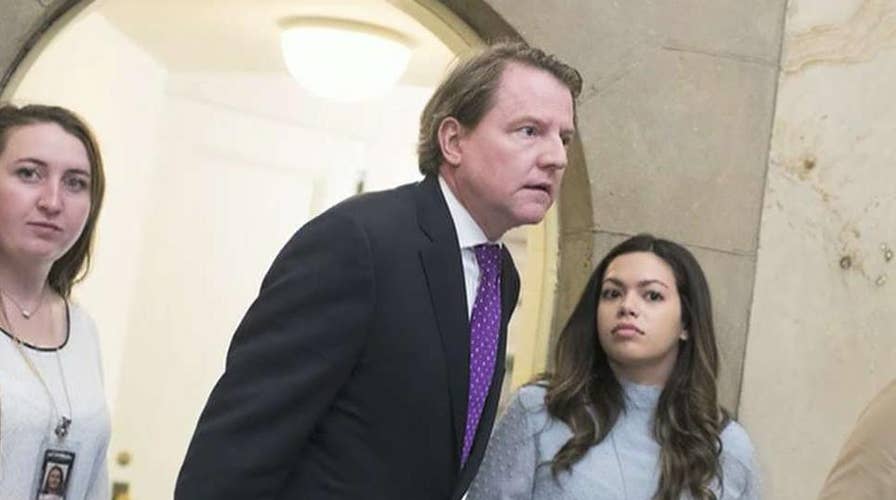House Democrats raise prospect of new impeachment articles against President Trump to compel McGahn testimony
Lawyers for the House Judiciary Committee say they're not ruling out impeaching President Trump again; Mark Meredith reports from Washington.
The Democrats on the House Judiciary Committee filed a petition with the U.S. Court of Appeals for the D.C. Circuit on Friday asking it to have an "en banc" rehearing – a hearing before all 11 judges on the court – of its case to enforce a subpoena against former White House Counsel Don McGahn.
A three-judge panel ruled last week against the committee's efforts to force McGahn to testify before the committee – saying it didn't have the authority to do so – dealing a blow to House Democrats in litigation they have been pursuing since shortly after former Special Counsel Robert Mueller's report on Russian election interference was released. The committee hopes a hearing with all 11 judges on the circuit court will give it a more favorable result.
"The Committee’s petition argues that the panel’s ruling misread binding precedent and – if allowed to stand – would severely undermine the House’s ability to perform its constitutional functions as a check on the Executive Branch," Judiciary Committee Chairman Rep. Jerry Nadler, D-N.Y., said in a statement Friday.
He added: "In fact, none other than President Trump’s own lawyers told the American people over and over again during the impeachment trial that the House should have gone to court to enforce its subpoenas. In addition, two of the three judges on the panel strongly suggested that they would reject President Trump’s claim of 'absolute immunity' if they were able to reach the merits of the case."

In this Sept. 27, 2018, file photo, then-White House counsel Don McGahn listens as Supreme court nominee Brett Kavanaugh testifies before the Senate Judiciary Committee on Capitol Hill in Washington. (Saul Loeb/Pool Photo via AP, File)
APPEALS COURT DISMISSES DEM EFFORT TO FORCE EX-WHITE HOUSE COUNSEL DON MCGAHN TO TESTIFY
In the Mueller report released last April, McGahn was supposedly a central witness to alleged attempts by President Trump to obstruct justice in the investigation — including one incident where McGahn supposedly stymied an attempt by Trump to fire Mueller himself by threatening to resign if Trump went through with it.
McGahn played a key role in the White House's legal operations, including the nominations and confirmations of Justices Neil Gorsuch and Brett Kavanaugh.
The Judiciary Committee subpoenaed McGahn about a month after the report's release, but the Trump administration claimed that McGahn had absolute immunity from being forced to testify to congressional investigators.
It is not unusual for the executive branch to claim that it doesn't have to cooperate with Congressional requests for information. But it was unusual that the two sides could not come to any sort of accommodation, which is how such requests from Congress are typically handled.
SCHUMER LAST MONTH CONDEMNED TRUMP FOR ATTACKING FEDERAL JUDGE
The committee then sued to force McGahn to testify and won on the district court level before the appeals court reversed the ruling, arguing that the judiciary would be violating the separation of powers and historical precedent if it were to meddle in this dispute between the other two branches of the federal government.
"As even the district court acknowledged, 'for two hundred years after the Founding[,] lawsuits between the Congress and the Executive branch did not exist, even though disputes between the Legislative and Executive Branches over congressional requests for information have arisen since the beginning of the Republic,'" the circuit court said in an opinion last Friday.
This was part of why the circuit court said the case was not a "justiciable" dispute – meaning a legitimate court case within the purview of the judiciary and capable of a judicial resolution – but rather a simple interbranch quibble that the House and the administration needed to work out on their own.
"The current statutory regime for enforcement of congressional subpoenas reflects Congress’s judgment that information disputes between the political branches do not belong in federal court," the court added. "Under this regime, only the Senate—and not the House—has statutory authority to enforce a subpoena in federal court."
The opinion suggested that there were nonjudicial remedies available to Congress, including holding up the president's legislative agenda, refusing to confirm his nominees or holding officers in contempt.
CLICK HERE TO GET THE FOX NEWS APP
The Judiciary Committee, however, argued in its Friday brief that those remedies are not legitimate options.
"The panel’s belief ... that Congress can use 'political tools to bring the Executive Branch to heel' is sorely misguided," its petition reads. "Use of the appropriations process to grind the Government to a halt over a subpoena dispute would be extraordinary and immensely damaging to the whole Nation. Appealing to the public in the next election does not aid this Committee in its urgent inquiries."
The committee concluded: "The stakes of the Committee’s inquiry are exceedingly high. The Committee is investigating allegations of President Trump’s improper political influence into ongoing criminal matters ... The Committee must hear from McGahn directly."
Fox News’ Lillian LeCroy contributed to this report.





